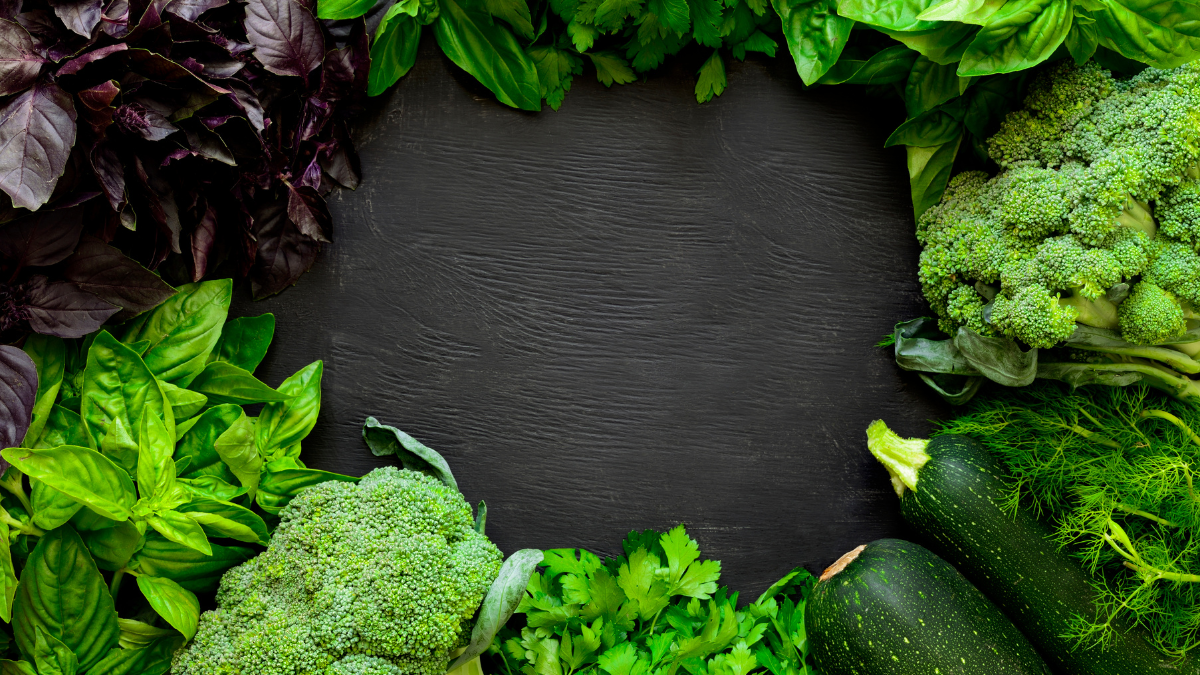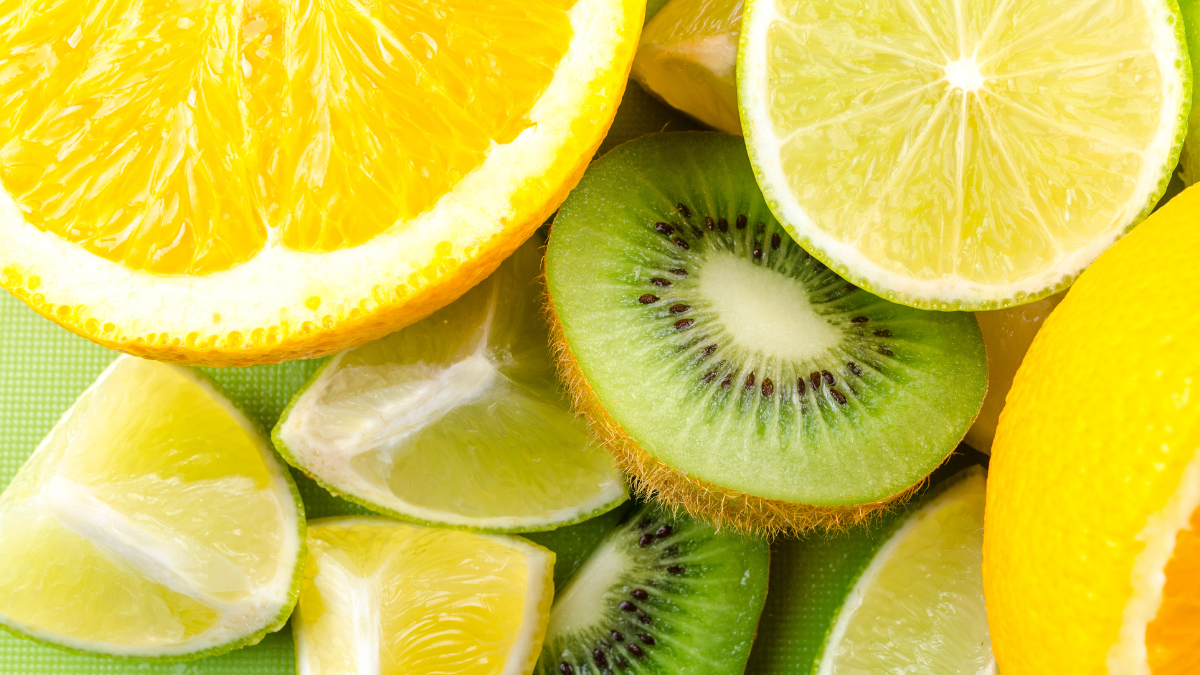When trying to conceive, a nutrient-rich diet is one of the most powerful tools to naturally boost fertility. Vegetables are packed with essential vitamins, minerals, and antioxidants that support reproductive health, regulate hormones, and improve egg and sperm quality. Including the right vegetables in your daily meals can enhance your body’s ability to conceive while also promoting overall well-being.
From leafy greens like spinach and kale to colorful vegetables such as bell peppers and carrots, each veggie offers unique benefits for both men and women. In this guide, we’ll explore the top 15 vegetables for fertility, highlighting their specific advantages and providing simple ways to add them to your diet so you can take proactive steps toward a healthy pregnancy.
Table of Contents
Why a Fertility-Friendly Diet Matters
Eating a fertility-friendly diet plays a vital role in supporting reproductive health and improving your chances of conception. Here’s why it matters:
- Supports Hormone Balance: Nutrient-rich foods help regulate estrogen, progesterone, and other reproductive hormones.
- Improves Egg and Sperm Quality: Antioxidants and essential vitamins protect reproductive cells from oxidative stress.
- Enhances Ovulation and Fertility: Folate, iron, and other nutrients promote healthy ovulation and reproductive function.
- Maintains a Healthy Weight: A balanced diet helps prevent weight-related fertility issues.
- Reduces Inflammation: Whole foods, especially vegetables, reduce inflammation that can interfere with conception.
- Prepares the Body for Pregnancy: Eating for fertility creates an optimal environment for implantation and early embryo development.
A fertility-focused diet is about more than just food—it’s about giving your body the best possible foundation for a healthy pregnancy and supporting overall reproductive wellness.
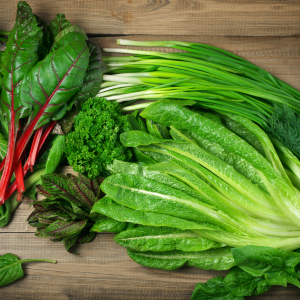
How Vegetables Improve Egg and Sperm Health
Vegetables are packed with essential nutrients and antioxidants that play a key role in supporting reproductive health for both men and women. Including a variety of vegetables in your diet can help improve the quality of eggs and sperm, enhancing your chances of conception. Here’s how:
- Rich in Antioxidants: Vegetables like spinach, kale, and bell peppers protect eggs and sperm from oxidative stress and free radical damage.
- Supports Hormone Production: Nutrients such as vitamin A, folate, and zinc help regulate hormones crucial for ovulation and sperm production.
- Improves Egg Quality: Folate-rich vegetables like spinach and asparagus support healthy egg development and reduce the risk of chromosomal abnormalities.
- Boosts Sperm Count and Motility: Antioxidant-rich vegetables improve sperm health, increasing count, motility, and overall quality.
- Enhances Blood Flow: Vegetables such as beets improve circulation to reproductive organs, supporting both egg and sperm health.
- Balances Blood Sugar: High-fiber vegetables help regulate blood sugar levels, which is important for hormone balance and fertility.
Incorporating a variety of colorful vegetables into your daily meals ensures your body gets a broad range of nutrients to naturally support reproductive health and improve fertility outcomes.
Best Vegetables for Female Fertility
Certain vegetables are particularly beneficial for women trying to conceive because they support ovulation, hormone balance, and overall reproductive health. Here are the top vegetables to include in your diet:
- Spinach:
- High in folate, iron, and vitamin C
- Supports healthy ovulation and reduces the risk of ovulation problems
- Can be eaten raw in salads or lightly sautéed
- Kale:
- Rich in antioxidants, vitamin K, and fiber
- Helps regulate hormones and protect eggs from oxidative stress
- Perfect for smoothies, soups, or as kale chips
- Asparagus:
- Packed with folate and vitamin K
- Supports egg development and hormone regulation
- Lightly steamed or roasted for best results
- Carrots:
- High in beta-carotene (vitamin A)
- Supports hormone production and egg quality
- Can be eaten raw, roasted, or in soups
- Sweet Potatoes:
- Rich in antioxidants and vitamin A
- Improves ovulation and reproductive health
- Delicious roasted, mashed, or in stews
- Broccoli:
- Contains vitamin C, fiber, and antioxidants
- Protects eggs from oxidative damage
- Can be steamed, roasted, or stir-fried
Including these vegetables regularly in meals not only boosts fertility but also provides overall health benefits. Eating a variety ensures your body receives all the essential nutrients required for a healthy conception journey.
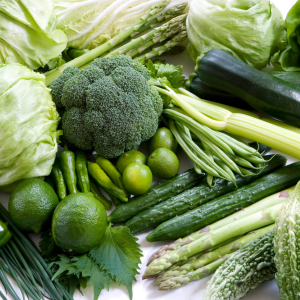
Best Vegetables for Male Fertility
A nutrient-rich diet is just as important for men when it comes to fertility. Certain vegetables can improve sperm quality, count, and motility while supporting overall reproductive health. Here are the top vegetables for men trying to conceive:
- Tomatoes:
- Rich in lycopene, a powerful antioxidant
- Improves sperm motility and protects sperm from oxidative damage
- Can be eaten raw, roasted, or in sauces
- Spinach:
- High in folate and antioxidants
- Supports healthy sperm production and overall reproductive health
- Best in salads, smoothies, or lightly sautéed
- Broccoli:
- Contains vitamin C, fiber, and antioxidants
- Enhances sperm quality and motility
- Steam, roast, or add to stir-fries
- Bell Peppers:
- Packed with vitamin C
- Protects sperm from oxidative stress and improves overall fertility
- Eat raw in salads or roasted
- Carrots:
- High in beta-carotene
- Supports healthy sperm development
- Can be eaten raw, roasted, or in soups
Including these vegetables regularly ensures men get the antioxidants and nutrients needed to support reproductive health. Pairing these with a balanced lifestyle, regular exercise, and avoiding toxins like smoking or excessive alcohol can further enhance fertility.
Top 15 Vegetables for Fertility to Boost Conception Naturally
From leafy greens to colorful root vegetables, each veggie offers unique fertility benefits. Let’s explore the top 15 vegetables for fertility, why they matter, and simple ways to include them in your diet.
1. Spinach
- Benefits: Rich in folate, iron, and vitamin C, spinach supports healthy ovulation and prevents ovulation problems.
- For Men: Folate and antioxidants improve sperm quality.
- How to Eat: Add to salads, smoothies, or lightly sauté with garlic.
2. Kale
- Benefits: Packed with vitamin K, antioxidants, and fiber, kale helps regulate hormones and protect reproductive cells.
- For Men & Women: Supports hormone balance and overall reproductive health.
- How to Eat: Blend in smoothies, make kale chips, or add to soups.
3. Broccoli
- Benefits: High in vitamin C and fiber, broccoli protects eggs from oxidative stress and supports hormone balance.
- For Men: Boosts sperm health and motility.
- How to Eat: Steam, roast, or stir-fry with olive oil.
4. Bell Peppers
- Benefits: Loaded with vitamin C, bell peppers support collagen formation for the uterine lining and improve egg and sperm health.
- How to Eat: Eat raw in salads, roasted, or in stir-fries.
5. Carrots
- Benefits: Contains beta-carotene (vitamin A), which supports hormone production and egg quality.
- How to Eat: Eat raw as snacks, roasted, or in soups and stews.
6. Sweet Potatoes
- Benefits: Rich in antioxidants and vitamin A, sweet potatoes support ovulation and reproductive health.
- How to Eat: Roast, mash, or add to stews.
7. Asparagus
- Benefits: Contains folate and vitamin K, which improve egg development and hormone regulation.
- How to Eat: Steam lightly or roast with olive oil.
8. Tomatoes
- Benefits: Packed with lycopene, tomatoes improve sperm quality and protect reproductive cells from damage.
- How to Eat: Eat raw, roasted, or in sauces.
9. Beets
- Benefits: Rich in folate, iron, and antioxidants, beets improve blood flow to reproductive organs.
- How to Eat: Roast, juice, or add to salads.
10. Brussels Sprouts
- Benefits: High in fiber and vitamin C, these help balance estrogen and protect eggs from oxidative stress.
- How to Eat: Roast or steam with a touch of olive oil.
11. Cauliflower
- Benefits: Contains vitamin C and antioxidants that protect eggs and sperm from damage.
- How to Eat: Steam, roast, or use as a low-carb rice substitute.
12. Zucchini
- Benefits: Rich in vitamin C and manganese, zucchini supports hormone balance and reproductive health.
- How to Eat: Grill, sauté, or spiralize into noodles.
13. Cabbage
- Benefits: Contains vitamin C, fiber, and antioxidants that support ovulation and hormone regulation.
- How to Eat: Use raw in slaws, or cook in soups and stir-fries.
14. Mushrooms
- Benefits: High in selenium and antioxidants, mushrooms support reproductive hormone production and protect eggs and sperm.
- How to Eat: Sauté, roast, or add to soups and salads.
15. Green Beans
- Benefits: Packed with folate, vitamin C, and fiber, green beans improve egg quality and support hormone balance.
- How to Eat: Steam, sauté, or add to stir-fries.
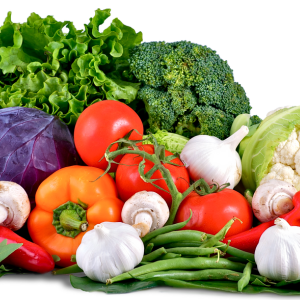
Nutrients in Vegetables That Boost Fertility
Vegetables are packed with essential nutrients that play a crucial role in supporting reproductive health for both men and women. Including a variety of vegetables ensures your body gets the vitamins, minerals, and antioxidants it needs to improve fertility naturally. Here are the key nutrients to focus on:
- Folate (Vitamin B9):
- Found in spinach, asparagus, and broccoli
- Supports healthy egg development and prevents neural tube defects in early pregnancy
- Vitamin C:
- Found in bell peppers, broccoli, and tomatoes
- Protects eggs and sperm from oxidative stress and improves hormone balance
- Vitamin A / Beta-Carotene:
- Found in carrots, sweet potatoes, and kale
- Supports hormone production and healthy ovulation
- Vitamin K:
- Found in kale, spinach, and broccoli
- Supports reproductive hormone regulation and blood clotting for implantation
- Iron:
- Found in spinach, beets, and broccoli
- Prevents anemia and ensures sufficient oxygen supply for reproductive organs
- Antioxidants:
- Found in nearly all colorful vegetables
- Protect reproductive cells from free radical damage, improving egg and sperm quality
- Fiber:
- Found in most vegetables, especially leafy greens and cruciferous vegetables
- Helps regulate blood sugar and hormone levels, supporting fertility
- Zinc & Selenium:
- Found in mushrooms, spinach, and green beans
- Supports sperm health, hormone production, and overall reproductive function
Including these nutrients through a variety of vegetables ensures your body has the building blocks for healthy conception and pregnancy.
Nutrients in Vegetables That Boost Fertility
Vegetables for fertility are packed with essential nutrients that play a crucial role in supporting reproductive health for both men and women. Including a variety of these vegetables ensures your body gets the vitamins, minerals, and antioxidants it needs to improve fertility naturally. Here are the key nutrients found in vegetables for fertility:
- Folate (Vitamin B9):
- Found in spinach, asparagus, and broccoli
- Supports healthy egg development and prevents neural tube defects in early pregnancy
- Vitamin C:
- Found in bell peppers, broccoli, and tomatoes
- Protects eggs and sperm from oxidative stress and improves hormone balance
- Vitamin A / Beta-Carotene:
- Found in carrots, sweet potatoes, and kale
- Supports hormone production and healthy ovulation
- Vitamin K:
- Found in kale, spinach, and broccoli
- Supports reproductive hormone regulation and blood clotting for implantation
- Iron:
- Found in spinach, beets, and broccoli
- Prevents anemia and ensures sufficient oxygen supply for reproductive organs
- Antioxidants:
- Found in nearly all colorful vegetables for fertility
- Protect reproductive cells from free radical damage, improving egg and sperm quality
- Fiber:
- Found in most vegetables for fertility, especially leafy greens and cruciferous vegetables
- Helps regulate blood sugar and hormone levels, supporting fertility
- Zinc & Selenium:
- Found in mushrooms, spinach, and green beans
- Supports sperm health, hormone production, and overall reproductive function
Including a variety of vegetables for fertility in your daily diet ensures your body has the building blocks for healthy conception and a successful pregnancy journey.
Fertility Vegetables to Pair with Other Foods
Eating vegetables for fertility is just one part of creating a diet that supports reproductive health. Pairing these vegetables with the right foods can enhance nutrient absorption and provide additional benefits for both men and women trying to conceive. Here are some smart pairings:
- Healthy Fats:
- Pair vegetables for fertility with avocado, olive oil, nuts, or seeds.
- Fat-soluble vitamins like A, K, and E are better absorbed when combined with healthy fats.
- Protein Sources:
- Combine vegetables for fertility with lean meats, eggs, fish, tofu, or legumes.
- Protein supports hormone production and tissue repair, essential for reproductive health.
- Whole Grains:
- Add vegetables for fertility to meals with quinoa, brown rice, or oats.
- Whole grains provide fiber that helps regulate blood sugar and hormone balance.
- Citrus & Vitamin C-Rich Foods:
- Pair leafy greens or broccoli with oranges, lemons, or bell peppers.
- Vitamin C enhances iron absorption from plant-based vegetables for fertility.
- Herbs and Spices:
- Use garlic, turmeric, ginger, or parsley when cooking fertility vegetables.
- These herbs add antioxidants and anti-inflammatory benefits that support reproductive health.
By thoughtfully pairing vegetables for fertility with complementary foods, you can maximize nutrient intake, improve hormone regulation, and naturally boost your chances of conception.
Tips for Maximizing Vegetables for Fertility Through Diet
Eating vegetables for fertility is essential, but combining them with a smart lifestyle and diet habits can further boost your chances of conception. Here are some tips to help you make the most of your fertility-focused meals:
- Eat a Rainbow of Vegetables:
- Include a variety of vegetables for fertility in different colors to get a wide range of nutrients and antioxidants.
- Balance Your Meals:
- Pair fertility vegetables with lean proteins, healthy fats, and whole grains to support hormone balance and overall reproductive health.
- Focus on Fresh and Seasonal Produce:
- Fresh, seasonal vegetables for fertility are more nutrient-dense than processed or out-of-season options.
- Avoid Excess Sugar and Processed Foods:
- Limit refined sugars and heavily processed foods that can disrupt hormone balance and reduce fertility.
- Cook Smart:
- Lightly steaming or sautéing vegetables for fertility can preserve nutrients while making them easier to digest.
- Stay Consistent:
- Consistent daily intake of fertility vegetables and nutrient-rich foods is key to supporting egg and sperm health.
By following these tips and making vegetables for fertility a regular part of your diet, you’re giving your body the nutrients it needs to naturally boost reproductive health and increase your chances of conception.
Fertility-Boosting Meal Ideas and Recipes
Incorporating vegetables for fertility into your daily meals doesn’t have to be complicated or boring. Here are some easy and delicious ways to include these nutrient-rich veggies in your diet:
- Breakfast:
- Green Smoothie: Blend spinach, kale, banana, and a splash of almond milk. Add chia seeds for extra fiber and omega-3s.
- Veggie Omelette: Use bell peppers, mushrooms, and tomatoes with eggs for a protein-packed, fertility-friendly start.
- Lunch:
- Quinoa & Roasted Veggie Bowl: Mix roasted broccoli, carrots, and sweet potatoes with quinoa and a drizzle of olive oil.
- Salad with Spinach & Asparagus: Add avocado, cherry tomatoes, and pumpkin seeds for extra nutrients.
- Dinner:
- Stir-Fried Veggies for Fertility: Combine broccoli, bell peppers, zucchini, and mushrooms with tofu or lean chicken.
- Roasted Vegetable Medley: Roast Brussels sprouts, beets, and carrots with herbs for a colorful, nutrient-dense side dish.
- Snacks:
- Veggie Sticks with Hummus: Carrots, bell peppers, and cucumbers make a crunchy, fertility-friendly snack.
- Roasted Chickpeas & Veggies: Add roasted sweet potatoes or zucchini for a satisfying, nutrient-packed option.
Including vegetables for fertility in every meal ensures your body receives the vitamins, minerals, and antioxidants it needs to support reproductive health naturally. These meal ideas make it simple and enjoyable to eat for fertility while supporting overall health.
Which Foods Improve Fertility?
Eating the right foods can naturally boost fertility for both men and women by supporting hormone balance, improving egg and sperm quality, and creating a healthy environment for conception. Here are some of the top fertility-boosting foods:
1. Vegetables for Fertility
- Leafy greens like spinach, kale, and broccoli are rich in folate, iron, and antioxidants.
- Root vegetables like carrots and sweet potatoes provide beta-carotene and vitamin A, supporting hormone production and ovulation.
2. Fruits for Fertility
- Berries, oranges, and papaya are high in vitamin C and antioxidants, which protect reproductive cells from oxidative damage.
- Pineapple contains bromelain, which may help improve uterine health.
3. Whole Grains
- Quinoa, brown rice, and oats provide fiber, B vitamins, and slow-release energy to support hormone balance.
4. Lean Proteins
- Eggs, chicken, fish, and legumes provide protein and essential amino acids for hormone production and reproductive cell development.
5. Healthy Fats
- Avocado, nuts, seeds, and olive oil contain omega-3 fatty acids that improve blood flow, hormone production, and egg and sperm health.
6. Dairy Products
- Full-fat yogurt, milk, and cheese provide calcium, vitamin D, and healthy fats that support ovulation and reproductive health.
7. Nuts and Seeds
- Walnuts, almonds, flaxseeds, and pumpkin seeds provide vitamin E, zinc, and healthy fats to improve sperm quality and egg health.
8. Herbs and Teas
- Red raspberry leaf tea, ginger, and turmeric support uterine health, reduce inflammation, and enhance reproductive wellness.
9. Legumes and Beans
- Lentils, chickpeas, and black beans are rich in folate, fiber, and protein, helping with hormone regulation and overall fertility.
Frequently Asked Questions (FAQ)
1. What are the best vegetables for fertility?
The best vegetables for fertility include leafy greens like spinach and kale, cruciferous vegetables like broccoli and Brussels sprouts, and root vegetables like carrots and sweet potatoes. These vegetables for fertility are rich in vitamins, minerals, and antioxidants that support egg and sperm health.
2. How do vegetables for fertility help women conceive?
Vegetables for fertility provide folate, vitamin C, beta-carotene, and fiber, which help regulate hormones, improve egg quality, and promote a healthy uterine environment for conception.
3. Can men benefit from vegetables for fertility?
Yes! Vegetables for fertility, like spinach, broccoli, and bell peppers, are packed with antioxidants and nutrients that improve sperm count, motility, and overall reproductive health in men.
4. How many servings of vegetables for fertility should I eat daily?
Aim for at least 4–5 servings of vegetables for fertility each day. A variety of colorful vegetables ensures you get a wide range of nutrients to naturally support reproductive health.
5. Can I cook vegetables for fertility or should I eat them raw?
Both raw and lightly cooked vegetables for fertility are beneficial. Light steaming or sautéing preserves most nutrients while making them easier to digest, while raw veggies provide vitamins like vitamin C in their natural form.
6. Are there any vegetables for fertility I should avoid?
Generally, all fresh, whole vegetables for fertility are beneficial. Avoid heavily processed or canned vegetables with added sodium or preservatives, which may reduce their fertility benefits.
7. How soon can I see fertility benefits from eating vegetables for fertility?
While results vary for each individual, consistently eating vegetables for fertility as part of a balanced diet can gradually improve hormone balance, egg and sperm quality, and overall reproductive health over a few months.
Conclusion
Incorporating vegetables for fertility into your daily diet is one of the easiest and most effective ways to support reproductive health naturally. From leafy greens like spinach and kale to colorful root vegetables such as carrots and sweet potatoes, each veggie provides essential vitamins, minerals, and antioxidants that improve egg and sperm quality, balance hormones, and enhance your chances of conception.
The best part is that eating these fertility-friendly vegetables can be both simple and delicious. By adding them to smoothies, salads, stir-fries, and roasted dishes, you’re nourishing your body while creating the optimal environment for a healthy pregnancy. Consistently including vegetables for fertility in your meals, paired with a balanced lifestyle, can make a real difference in your journey to parenthood.



